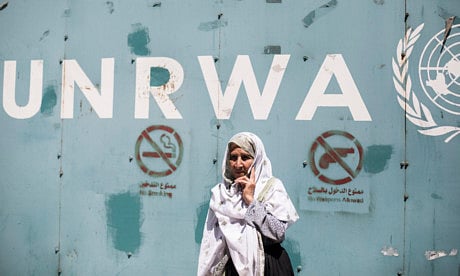President Biden’s new administration announced last week that it would renew humanitarian aid to the United Nations Relief and Works Agency (UNRWA), “restore credible relations” with the Palestinian National Authority (PNA) and revive Washington’s backing for a two-state solution.
Acting US Ambassador to the United Nations, Richard Mills, made the announcement at a high-level UN Security Council meeting.
“Under the new administration, the policy of the United States will be to support a mutually agreed two-state solution, one in which Israel lives in peace and security alongside a viable Palestinian state”, he said, while adding “it must be clear” — or, to resurrect a quaint phrase from the Balfour Declaration, “it being understood” — that “the US will maintain its steadfast support for Israel”.
Decidedly quite a dramatic reversal of the stance adopted by the previous administration.
Whoopee, the Palestinians are fashionable again.
For the Palestinian leadership, which has been asleep at the wheel and, worse, tearing itself apart by ruinous spasms of infighting for well over two decades, the news bode well. For the Palestinian street, however, the news was a snoozer.
After all these years, you see, promises by Washington to mediate the question of Palestine even-handedly — all broken — now lie in a pile of shards in the memory bank of ordinary Palestinians.
Clearly these folks have more on their minds to chew over these days than putative gestures of goodwill by the White House.
What’s on their minds, let’s say, is how harrowed and beaten the lives they live today have become, how a stultifying sense of existential dread has numbed their human being, how they stand alone, seemingly with no way around, through or out of their pitiable condition, and how, they have always been a part of the history of the Arab world, much as a leaf is part of a tree.
It is evident that grief and suffering are today ingrained in the habits of spirit of Palestinians who live in the West Bank and Gaza, where a corrosive ennui has thickened at crucial nerve-ends of political, social and cultural life, a condition that in turn robs individual existence of anchor to its meaning.
But that grief and suffering — different in kind but the same in degree — afflicts exiled Palestinians as well. These folks, most stateless in host states, live a life that effectively lies outside the governance of reason, for there you are haunted by the feeling that a sense of at-homeness will constantly elude you.
In that world, your only guard against the onslaught of madness is your developed sense history as personal context, an intellectually detached posture enabling you to see the fate that has befallen your people, in the homeground and in the diaspora, as much having been a part of God’s mysterious truths as of the grit of man’s condition. And you soldier on.
Emergence of a dynamic leadership
Catch these Palestinians at unguarded moments of self-address and you will hear them mutter: What if. What if? What if, in March 1968, following the Battle of Karameh, which launched the Palestinian national movement — a movement meant to embody a whole generation’s will-to-meaning — our patriotic fervour coalesced with the emergence of a dynamic leadership instead of a ham-fisted one?
What of Yasser Arafat, in November 1974, while he stood at the podium in the UN General Assembly, had stated in his speech that the people of Palestine would accept a separate state confined to the West Bank and Gaza?
What if Palestinian negotiators, in August 1993, had bothered to take along with them, before they flew to Norway to conduct those secret negotiations with their Israeli counterparts, a couple of experts in international law to guide them on what of their people’s rights they should not sign away in the Oslo agreement? And so on with other what-ifs.
And, no, this is not all water under the bridge.
To ask what would’ve happened had one done or not done something is known in historiography as “countercultural history”, to which social scientists give this obtuse definition: “It is, at the root, the idea of conjecturing on what did not happen, or might have happened, in order to understand what did happen”. What did happen is that the people of Palestine were left high and dry by their leadership.
The question we need ask today — and I know of none more urgent — is whether the new generation of Palestinian leaders, committed to recapturing their people’s vision, would acquaint itself with the golden rule reminding one and all that those who do not learn from their history are doomed to repeat it.
Oh, no, in the name of mercy, not that history again, please.
— Fawaz Turki is a journalist, academic and author based in Washington. He is the author of The Disinherited: Journal of a Palestinian Exile
Sign up for the Daily Briefing
Get the latest news and updates straight to your inbox
Network Links
GN StoreDownload our app
© Al Nisr Publishing LLC 2026. All rights reserved.
